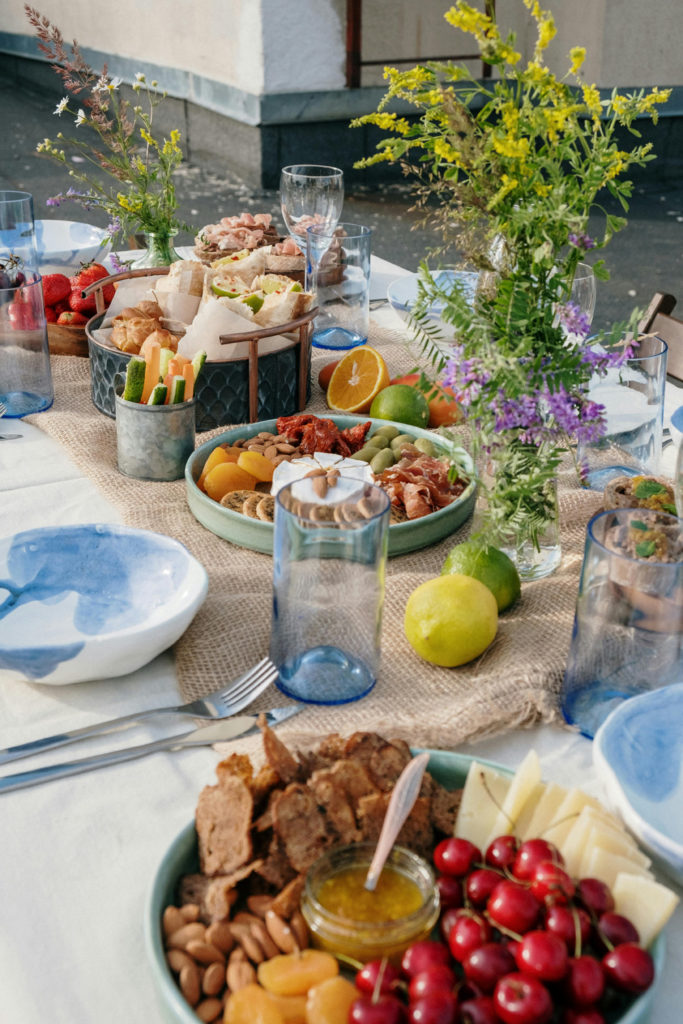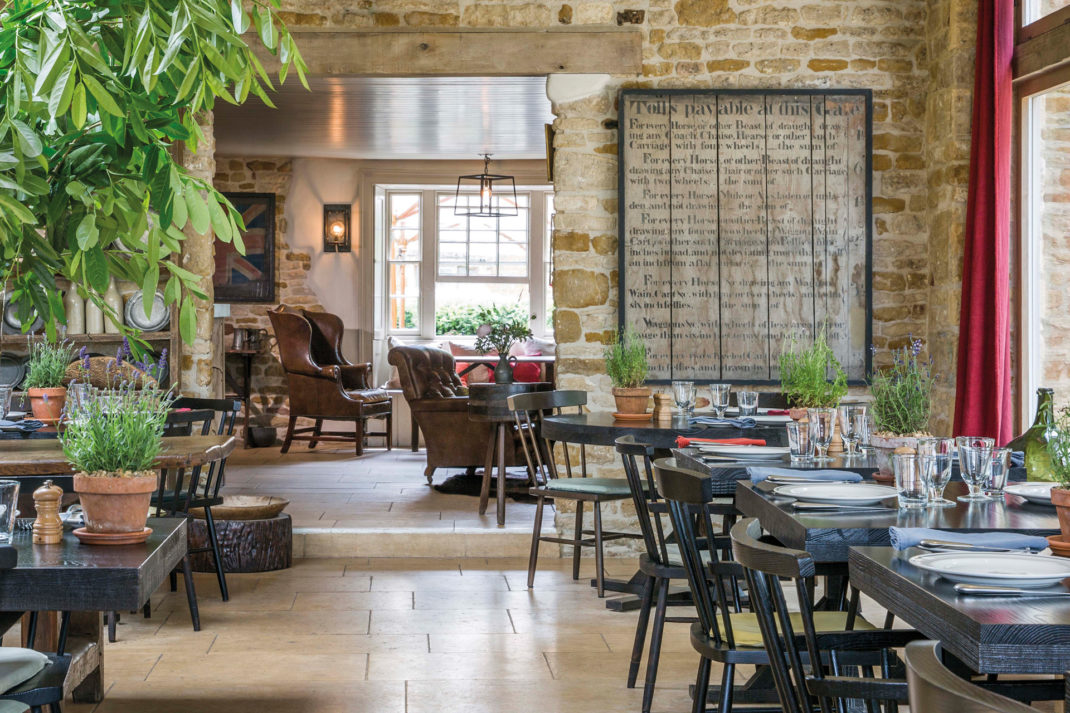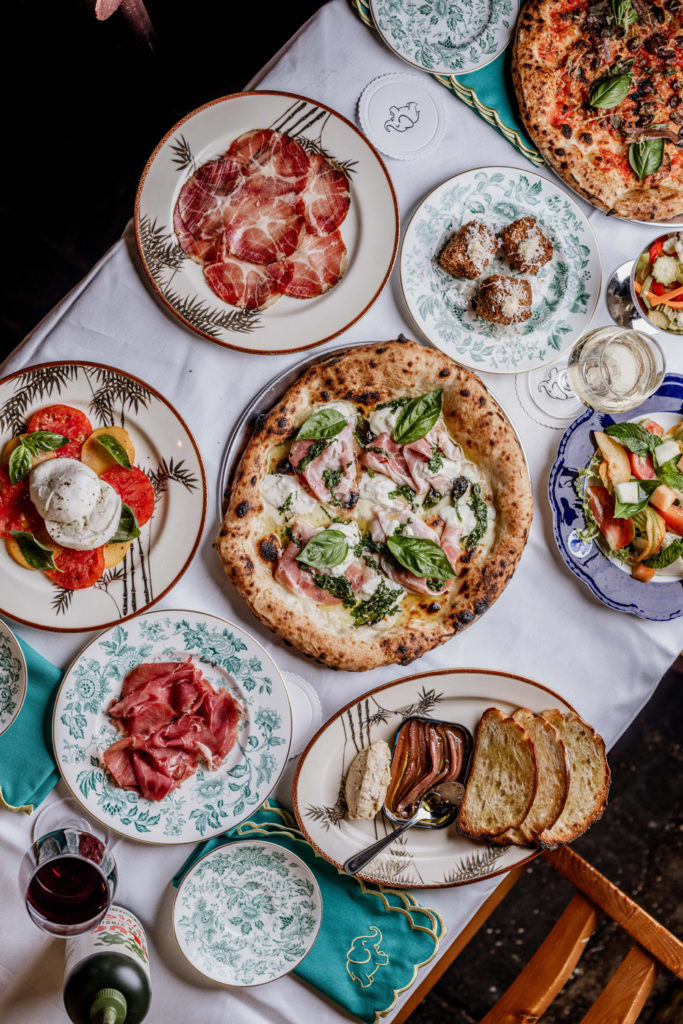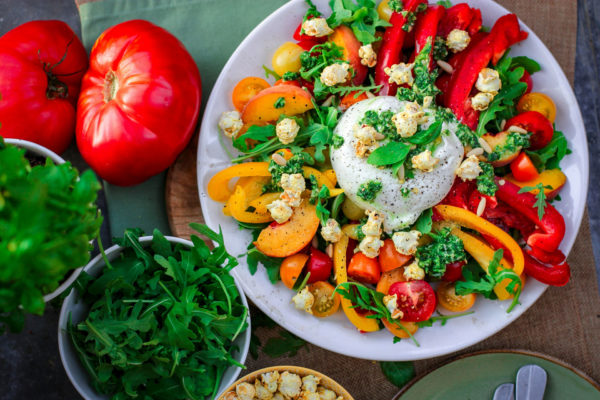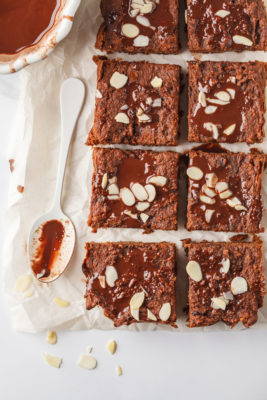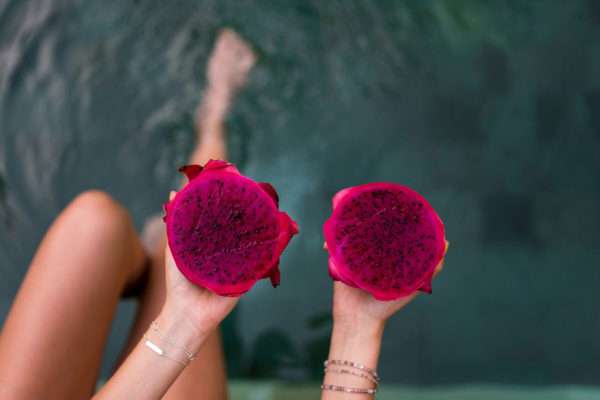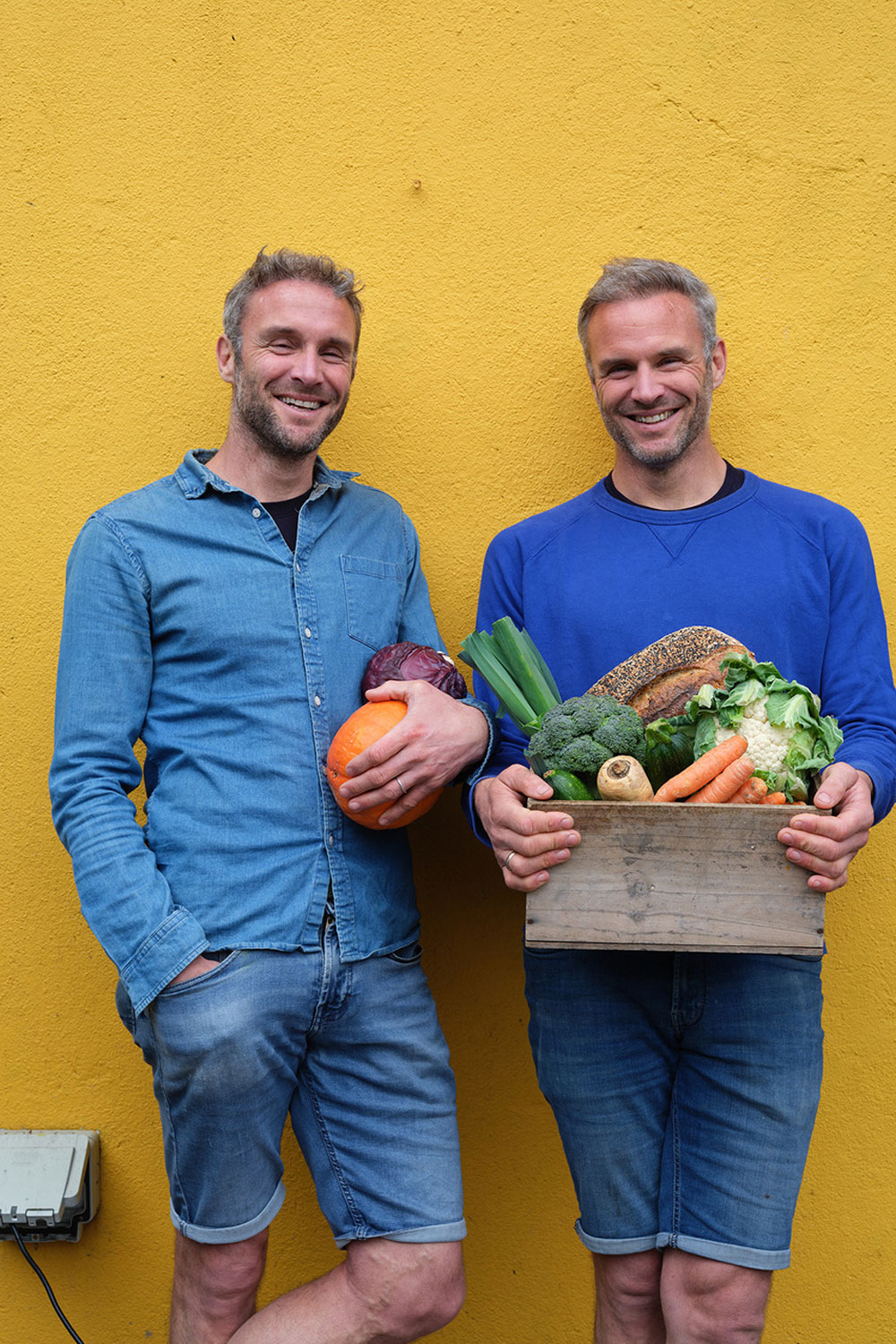
The Happy Pear Twins On Making Veggies Trendy
By
8 months ago
The Irish duo reflect on 20 years of their plant-based business
Vegetables are in vogue right now, but Irish twin brothers Steve and Dave Flynn were way ahead of the curve. The duo launched The Happy Pear in 2004 after independently both becoming plant-based in their early 20s, and deciding to start a ‘food revolution’ centred around one simple goal: to inspire people to eat more veg. It began as a small shop in their hometown of Greystones, and grew into a bigger brand comprising food products, online courses, cookbooks and a four-acre regenerative farm – plus a loyal community of millions of like-minded plant lovers. Twenty years since the beginning, the pair reflect on the evolution of The Happy Pear, and how the food and sustainability landscapes have changed since they started out.
Interview with The Happy Pear Founders Steve and Dave Flynn
How would you describe your food ethos?
Our food ethos is to help people to eat more veg. It’s not about being vegan or vegetarian, but about encouraging people to eat more whole plant foods. In the UK, 90 percent of people or nine out of 10 people don’t get their recommended daily intake of fibre, and fibre you’ll only get in fruit, veg, beans, legumes, nuts and seeds and whole grains. So, our mission is to help people eat more whole foods in any way they can, and to accept people where they’re at.
Going back to the beginning, where did you get the idea for The Happy Pear from?
We had changed our diet from eating meat and two veg and swilling pints to realising how we ate massively impacted how we feel and how we felt, and also impacted the world around us. We became fascinated with food and its impact, and as a result, we felt so transformed that we wanted to try to inspire others to be healthier and happier and to come together around food. And thus the birth of The Happy Pear.
Tell us about your new book. What can we expect?
Our new book celebrates 20 years of The Happy Pear. It’s our best recipes as well as learnings from 20 years in business. For anyone who wants to eat more veg to learn how to eat healthier and to live a healthier lifestyle, it’s wonderful. We think it’s our best book yet, and we’re super proud of it. It’s packed full of soul, and there’s loads of photos, learnings, failures, ways to get your kids to eat more veg. It’s also full of helpful lifestyle advice, as well as over 100 recipes, from fermentation to recipes our kids actually love, to five ingredient cakes to beautiful breakfasts and so much more. We’re super proud of it.
How have the food and health worlds changed since you started out?
Since we first started with our fruit and veg shop – it was a traditional greengrocers – most customers were buying 10 kilo bags of potatoes. They were buying cabbages. They were buying swedes and turnips and mostly root vegetables. Every week we would throw out aubergines, lemongrass, ginger, avocados, because people didn’t buy them. They didn’t know what they were. And then, over the last 20 years, we’ve seen now our best-selling items are avocados, asparagus, lemongrass, ginger, fresh turmeric. The palate has changed. We no longer sell 10 kilo bags of potatoes.
We’ve also seen when we first started going into the fruit market, it was a lot of small, smaller scale farmers who would be bringing in their wares. And over the years, it transformed to larger trucks, big 40 foot trucks coming in, and it kind of moved from this smaller, decentralized food system to a much more centralized model. And we’ve also seen that a lot of people are talking about wanting to eat more fibre-rich, more plant based foods, but because we live in an obesogenic environment where it’s easier to get ultra processed foods than it is whole foods, it’s difficult. So there’s been a rise of obesity as a result, and our mission is still the same: to help people to eat more veg.
How have you both changed, personally and as a business?
Personally, when we first started The Happy Pear, we were very idealistic. We’re still very idealistic, but we were even more idealistic, and we were eating a kind of a raw vegan diet that was all local, and it was packed full of living foods. Having children, I think we’ve been tempered a little bit. We still eat a wholefood, plant based diet, but we’ve learned to be a lot more gentler and accepting, and meet people where they’re at. We both have three children each, and we do our best. When they’re at home, they eat a wholefood, plant based diet, but when they’re out, they’ll eat what’s available.
Have we changed as a business? The business has grown from a traditional fruit and veg to where we have a cafe, sourdough bakery, four acre organic, regenerative farm and coffee roastery. We have a suite of 80 different products that we sell all across Ireland, and they’re now available in the UK, and we’re super excited. We also have an online courses platform and app where we help people to eat more veg, partnering with a lot of medical professionals, from gastroenterologists to cardiologists to gynecologists and much more.
View this post on Instagram
Food as a medicine was highlighted as one of the key food trends by Mintel for 2025. Does this chime with your ethos?
Absolutely, we think food is much more than medicine. Food is an opportunity to connect with the landscape. Food is an opportunity to connect with the earth. Food is an opportunity to connect with the season, and food can be medicine, depending on what we eat. Right now, we are living in an obesogenic environment where it’s easier for people to eat more calories than they need, and that’s largely because our biological system is hardwired to crave foods that are higher in calories and where the calories are more readily available, whereas, ideally, we function best when we eat more whole plant foods.
So food can be medicine, and that’s very much our mission, to help people to eat more veg and encourage people to get more fibre. Seventy percent of the immune system exists in the gut, and fibre is known as a prebiotic, which in essence, it’s the food that the microorganisms in your large intestine feed on to create lots of beneficial bacteria for you to have a strong immune system.
You have a huge following online. How do you navigate the challenges of social media?
We love it and we hate it. It’s wonderful. It really it has an opportunity to inspire people to live healthier lives, and also it requires we spend more time on a screen. So it’s a double edged sword. We love it, and equally, we can find it challenging, so we temper it as best we can.
The rise of Tiktok has seen an increase in misinformation surrounding health and diet. How do you ensure accuracy when joining health conversation online?
Our message is simple. We tend to join it from that simple approach to eat more veg and try not to get into the semantics around it. It is difficult. There are a lot of conflicting arguments, but I think most people can agree with the simple message that eating more whole plant foods is better for everyone. That’s humans, that’s the planet, that’s society at large.
You both have children. How do you encourage positive conversations around healthy eating at home?
We have a four acre farm, we encourage our kids to come up and be involved in the growing process at home, we encourage them to cook and be involved in the cooking process. And then food is love. We all gather around. We have a family breakfast and a family dinner every day and it’s such an opportunity to come together as a family, and it’s something that we really celebrate, and we try to make it something that’s beautiful and that we all love. That’s why in this book, we have a whole section called dinners our kids actually eat, and it’s ones that we cook literally weekdays and weekend, that our kids absolutely adore.
What are the biggest challenges in the food/nutrition industry right now?
The biggest challenge right now is one: ultra processed foods, and two: obesity. The conflict between capitalism encourages profit, and profit isn’t bad, it just can often encourage the proliferation of processed foods, because humans are hardwired for them. It’s easier to sell chocolate than it is to sell kale and so it’s difficult.
And then with the advent of climate change and animal agriculture, this is a challenge that will need to be addressed too, or just agriculture in general. This is one of the second biggest emitters of carbon, so I think it’s a question of how we can address this while still feeding people the most nutritious foods possible. And that’s why we’ve started our four acre organic regenerative farm, to create a system that’s based on biodiversity. It’s a regenerative no-till farm. So it’s all about encouraging more biodiversity, encouraging to sequester carbon, encourage and grow the most nutritionally dense foods possible.
Tell us about your organic farm. What are your key farming principles?
We practice a no dig, regenerative process. Regenerative in our practice, is about building soil biodiversity in the hope that we will grow the most nutritious food possible. There’s a huge link between flavour and nutrient density, and what we’re trying to grow is the most nutrient dense food that tastes incredible. Also, the goal of the farm is to connect our local community to their food so they understand what’s in season, how it’s grown, and just encourage them to eat healthier. Next week, we have two local schools coming up to do tours of the farm. So it’s exciting to see this happen.
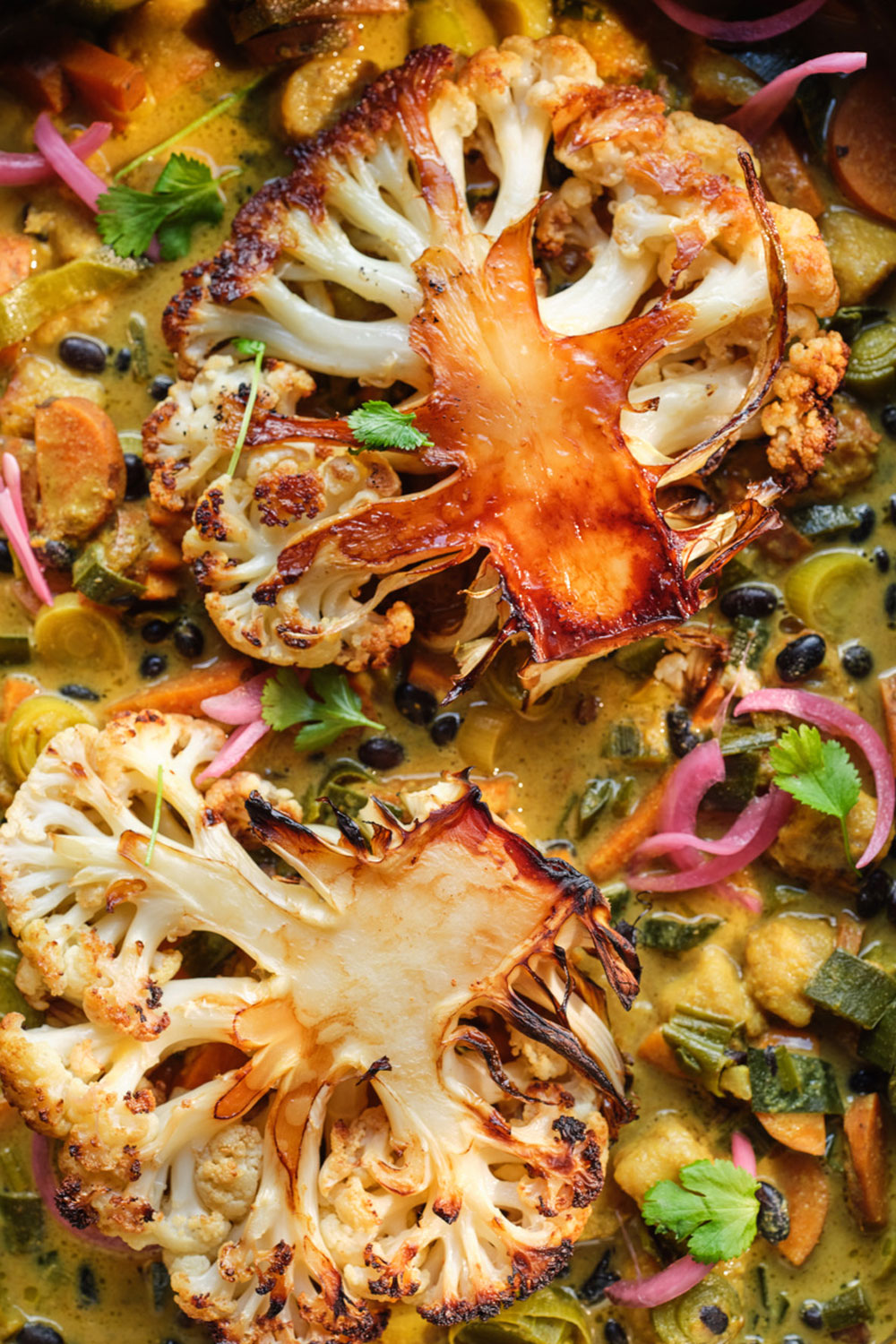
What is your favourite seasonal ingredient right now, and how are you using it?
For Halloween we grew five different varieties of pumpkin on our farm, and a red Cabochon, or Crown Prince is great. Pumpkins are incredible when sliced, mixed with a little bit of oil and salt and roasted for about 30 minutes with the skin on. They just melt in your mouth and the caramelizing is delicious.
What else is on the cards for The Happy Pear?
We’re focused on our products launching in England. We’re really excited. We have our new book out, and we are going on a book tour and spending time on the road encouraging people to eat more veg. Our book is a wonderful gateway to help people to eat more veg and to just understand the principles that we apply to live a healthier life. Our products are now starting to be more widely available in the UK, and we’re really excited about that. We were also on the Today Show in America recently. That’s one of the biggest TV shows, and we were helping people and cooking a number of recipes which was very exciting.
The Happy Pear 20 cookbook is out now.

